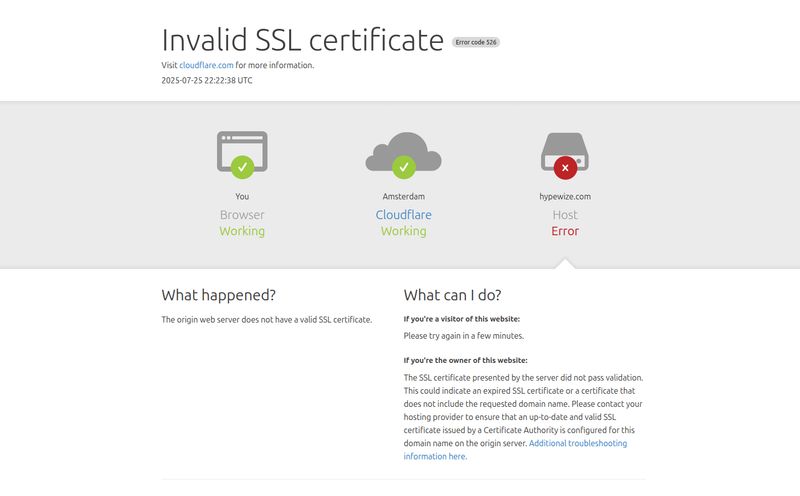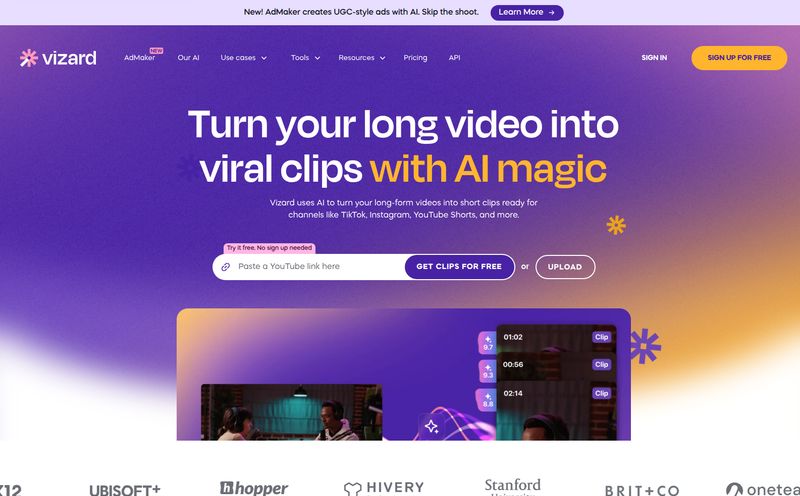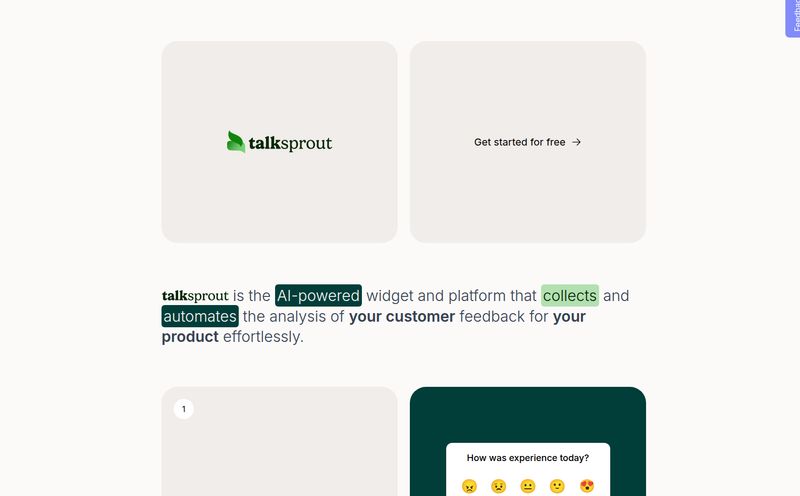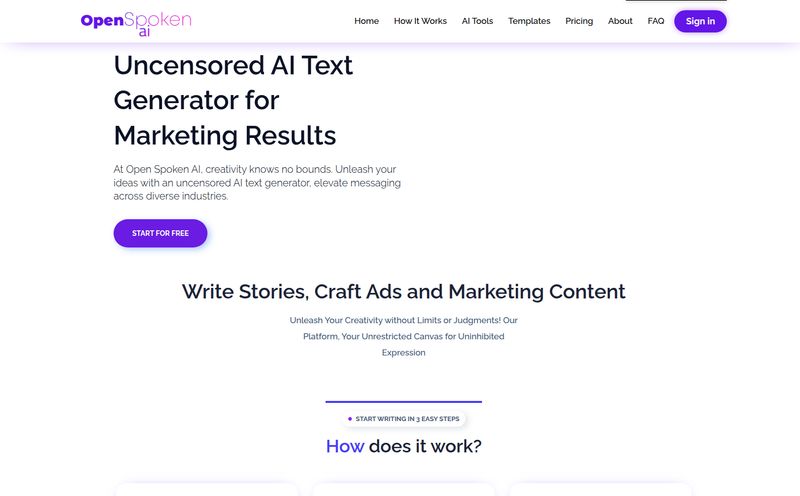Alright, let’s have a real chat. In the world of SEO and traffic, we’re obsessed with the user journey. But what happens at the final, most critical touchpoint? Customer support. For years, I’ve watched companies pour fortunes into getting customers to their site, only to fumble the ball with clunky, outdated contact center software. It’s like building a supercar and then putting bicycle wheels on it. Frustrating, right?
So, when a platform like Tryvium pops onto my radar, I’m instantly curious. Skeptical, but curious. They talk a big game: AI-powered, cloud-based, enhances both customer and employee experience. I’ve heard that song before. But the more I looked into it, the more I realized there might be something different here. This isn’t just another call center solution with a fresh coat of paint. It feels... intentional.
So, What is Tryvium, Stripped of the Marketing Jargon?
Let's cut through the noise. At its core, Tryvium is a cloud contact center built for large organizations. We're talking enterprises with 5,000+ employees, so if you're a small startup, this probably isn't your playground just yet. Its whole reason for being is to take your support operations, which are probably a tangled mess of different systems, and streamline them using a heavy dose of AI and a very specific home base: Microsoft Teams.
Think of it as a smart layer that sits on top of your communication channels. It uses AI to handle the simple stuff automatically, routes the complex stuff to the right person, and gives your agents and supervisors the tools to not just solve problems, but to see patterns and prevent future ones. It’s about moving from a reactive “firefighting” mode to a proactive, data-informed strategy. A concept we in the digital marketing space know all too well.

Visit tryvium
The Features That Actually Make a Difference
Any platform can throw a list of features on a pricing page. What I care about is how they actually work in the real world. Does this stuff actually help an agent who’s on their seventh straight hour of calls? Here’s what stood out to me.
AI That Does More Than Just Answer “What are your hours?”
The term 'AI' gets thrown around so much it’s almost lost all meaning. But Tryvium’s application seems pretty practical. Their Virtual Assistant, powered by Natural Language Processing (NLP), is designed to handle those repetitive, tier-one queries that clog up your queues. This isn't just a simple chatbot. It’s about automating entire use cases, freeing up your human agents to tackle the emotionally charged, complex problems where they truly shine.
Then there's the AI-Driven Routing. This is cool. Instead of just a first-in, first-out queue, the system can route inquiries based on agent skills, customer history, or even sentiment analysis. Someone's sending an angry email? It gets flagged and sent to a specialist trained in de-escalation. It's like having a hyper-efficient, emotionally intelligent traffic cop directing your entire support ecosystem. And the Copilot Automation for agents—giving them real-time suggestions, transcriptions, and summaries—is a massive win for consistency and quality.
Living Inside Microsoft Teams: A Bold Move
This is probably the most polarizing part of Tryvium’s strategy. The entire agent console lives within Microsoft Teams. My initial reaction was, “Huh. Really?” On one hand, it’s brilliant. Your agents don’t have to learn a whole new piece of software. They live in Teams all day anyway, so it reduces context switching and training time. For a large enterprise already deep in the Microsoft ecosystem, this could be a game-changer.
On the other hand, it hitches your wagon firmly to the Microsoft star. If your organization is more of a Slack or Google Workspace shop, this is a non-starter. I have to respect the conviction, though. Instead of trying to be everything to everyone, they’ve picked a lane and are absolutely owning it. It shows a deep understanding of their target enterprise customer.
Analytics That Don’t Put You to Sleep
I’ve seen my share of contact center reports. Most are data dumps – pages and pages of numbers that look impressive but tell you absolutely nothing. Tryvium seems to get this. Their supervisor dashboards are built for real-time monitoring. You can see live sentiment analysis, track KPIs as they happen, and even get co-pilot suggestions for admins to optimize workflows on the fly.
This is the kind of stuff that turns a support center from a cost center into a value generator. You can spot a recurring issue from a product bug in minutes, not weeks, and get that feedback to the dev team. For anyone trying to improve customer lifetime value (CLV), this direct line from support to strategy is pure gold.
Let’s Talk Money: The Tryvium Pricing Tiers
Okay, the million-dollar question. Or in this case, the several-thousand-dollars-a-month question. Tryvium is transparent with its starting prices, which I appreciate. But remember, this is enterprise software; the final price will likely be custom based on your specific needs. The prices on their site are based on 15 agent licenses.
| Plan | Starting Price | Who It's For |
|---|---|---|
| Light | $3,575 / month | Enterprises focusing on text-based support (chat, email) who want to dip their toes into AI automation. |
| Essential | $5,242 / month | The full omnichannel experience. This is for teams that need to integrate voice support seamlessly with their digital channels. |
| Advanced | $7,742 / month | The whole shebang. This tier adds 'Intelisense', which appears to be their most advanced AI and analytics suite for deep operational insights. For the data-obsessed. |
The pay-as-you-go model is also interesting, suggesting a degree of scalability that’s often missing at the enterprise level. And their claim of a four-week implementation is... ambitious. In a world where enterprise software rollouts can take a year, that’s a seriously bold promise.
The Good, The Bad, and The AI-Powered
What Gets Me Genuinely Excited
The speed and scalability are huge selling points. The promise of getting a powerful, AI-driven contact center up and running in just a month is almost unheard of. I'm also really impressed by the depth of the analytics. It's not just rearview mirror reporting; it's a forward-looking intelligence engine. And the integrations are solid—seeing ServiceNow, Jira, and Salesforce on their list means they understand the need to play nice with the existing tech stack. That’s a sign of maturity in a platform.
A Few Things to Keep in Mind
No platform is perfect, and its biggest strength is also a potential weakness: the reliance on Microsoft Teams. If you’re not a Teams shop, it’s a non-starter. Full stop. Also, the pricing, while transparent at the entry-level, is still custom. This means you’ll have to engage with their sales team to get a final number, a process some people love and others... dont. It's just the nature of the enterprise beast, I suppose.
Is Tryvium the Right Move for Your Company?
So, here’s my final take. If you’re a large enterprise, you’re already heavily invested in the Microsoft ecosystem, and your current contact center feels like it’s being held together with duct tape and good intentions, then you should absolutely be looking at Tryvium. It feels like it was purpose-built for you.
It’s a specialized tool for a specific type of problem, and I think that’s its power. It’s not trying to boil the ocean. It’s trying to give enterprise-level support teams who live in MS Teams a set of AI-powered water wings. And from what I can see, it does a pretty compelling job of it.
Frequently Asked Questions about Tryvium
- What exactly is Tryvium?
- Tryvium is an AI-powered, cloud-based contact center platform designed specifically for large enterprises. It integrates directly into Microsoft Teams to provide a unified console for agents to handle customer inquiries across various channels like chat, voice, and email.
- Is Tryvium suitable for small businesses?
- Not really. Their solutions and pricing are geared towards large organizations, typically those with 5,000 or more employees. Small businesses would likely find it too robust and costly for their needs.
- What are the main AI features?
- The key AI features include an NLP-based Virtual Assistant for automating common questions, AI-driven routing to send customers to the best-suited agent, and a Copilot feature that provides real-time assistance and summaries to agents.
- Do I have to use Microsoft Teams to use Tryvium?
- Yes. The agent console and core experience are built to operate entirely within Microsoft Teams. This is a core part of its design, so being a Teams-centric organization is a prerequisite.
- What kind of platforms does Tryvium integrate with?
- Tryvium boasts robust integrations with major ITSM and CRM platforms, including ServiceNow, Jira, Salesforce, and Power BI, allowing it to fit into an existing enterprise technology stack.
- How is Tryvium's pricing structured?
- It's a tiered, pay-as-you-go model with plans named Light, Essential, and Advanced, starting at $3,575 per month for 15 agents. The final pricing is custom and requires contacting their sales team for a quote tailored to your organization's needs.



